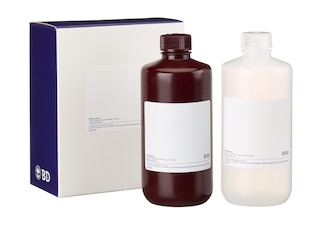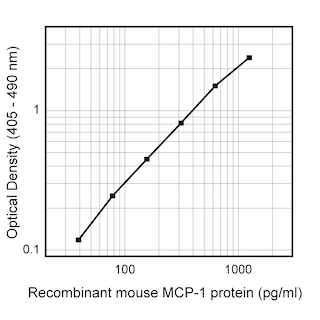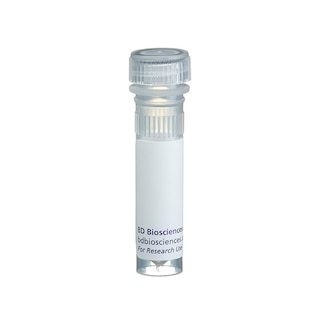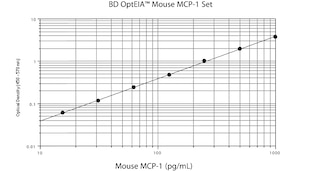-
Reagents
- Flow Cytometry Reagents
-
Western Blotting and Molecular Reagents
- Immunoassay Reagents
-
Single-Cell Multiomics Reagents
- BD® OMICS-Guard Sample Preservation Buffer
- BD® AbSeq Assay
- BD® Single-Cell Multiplexing Kit
- BD Rhapsody™ ATAC-Seq Assays
- BD Rhapsody™ Whole Transcriptome Analysis (WTA) Amplification Kit
- BD Rhapsody™ TCR/BCR Next Multiomic Assays
- BD Rhapsody™ Targeted mRNA Kits
- BD Rhapsody™ Accessory Kits
- BD® OMICS-One Protein Panels
-
Functional Assays
-
Microscopy and Imaging Reagents
-
Cell Preparation and Separation Reagents
-
- BD® OMICS-Guard Sample Preservation Buffer
- BD® AbSeq Assay
- BD® Single-Cell Multiplexing Kit
- BD Rhapsody™ ATAC-Seq Assays
- BD Rhapsody™ Whole Transcriptome Analysis (WTA) Amplification Kit
- BD Rhapsody™ TCR/BCR Next Multiomic Assays
- BD Rhapsody™ Targeted mRNA Kits
- BD Rhapsody™ Accessory Kits
- BD® OMICS-One Protein Panels
- Germany (English)
-
Change country/language
Old Browser
This page has been recently translated and is available in French now.
Looks like you're visiting us from United States.
Would you like to stay on the current country site or be switched to your country?
BD Pharmingen™ Recombinant Mouse MCP-1


Regulatory Status Legend
Any use of products other than the permitted use without the express written authorization of Becton, Dickinson and Company is strictly prohibited.
Product Details
Description
Mouse monocyte chemoattractant protein-1 (MCP-1), previously termed JE, is a member of the CC chemokine family and a homolog of human MCP-1. MCP-1 is expressed by a variety of cell types including monocyte/macrophages, endothelial cells and mesangial cells. MCP-1 has chemoattractant activity on monocytes, lymphocytes and basophils but is not active on neutrophils. Recombinant mouse MCP-1 (MN 554590) is supplied as a frozen liquid comprised of 0.22 µm sterile-filtered aqueous buffered solution (pH 7.2) and containing 1.29 mg/mL bovine serum albumin, with no preservatives. Recombinant mouse MCP-1 is > 95% pure as determined by SDS-PAGE, and an absorbance assay based on the Beers-Lambert law. The endotoxin level is ≤ 0.1 ng per µg of mouse MCP-1, as measured in a chromogenic LAL assay.
Preparation And Storage
Recommended Assay Procedures
Upon initial thawing, recombinant mouse MCP-1 (MN 554590) should be aliquoted into polypropylene microtubes and frozen at -80°C for future use. Alternatively, the product can be diluted in sterile neutral buffer containing not less than 0.5 - 10 mg/mL carrier protein, such as human or bovine serum albumin, aliquoted and stored at -80°C. For in vitro biological assay use, carrier-protein concentrations of 0.5 - 1 mg/mL are recommended. For use as an ELISA standard, carrier-protein concentrations of 5 - 10 mg/mL are recommended. Failure to add carrier protein or store at indicated temperatures may result in a loss of activity. Carrier proteins should be pre-screened for possible affects in each investigator's experimental system. Carrier proteins may have an undesired influence on experimental results due to toxicity, high endotoxin levels or possible blocking activity.
ELISA Standard: Recombinant mouse MCP-1 (MN 554590) can be useful as a quantitative standard for measuring mouse MCP-1 protein levels using sandwich ELISA with the purified 2H5 antibody (Cat. No. 551217) as a capture antibody and the biotinylated 4E2/MCP antibody (Cat. No. 554444) as the detection antibody. To obtain linear standard curves, investigators may want to consider using doubling dilutions of recombinant mouse MCP-1 from 4000-30 pg/mL to be included for each ELISA plate. For measuring mouse MCP-1 in serum or plasma, investigators are highly encouraged to use the BD OptEIA™ Mouse MCP-1 Set (Cat. No. 555260).
Bioassay: Investigators are advised that the Bioassay application is not routinely tested for this material and are highly encouraged to both titrate this material and include appropriate controls in relevant experiments. An activity range encompassing an ED50 = 50 - 800 ng/mL has previously been reported using THP-1 as indicator cells utilizing a calcium flux assay.
Product Notices
- Since applications vary, each investigator should titrate the reagent to obtain optimal results.
- Source of all serum proteins is from USDA inspected abattoirs located in the United States.
- Please refer to www.bdbiosciences.com/us/s/resources for technical protocols.
Data Sheets
Companion Products




Development References (7)
-
Boring L, Gosling J, Monteclaro FS, Lusis AJ, Tsou CL, Charo IF. Molecular cloning and functional expression of murine JE (monocyte chemoattractant protein 1) and murine macrophage inflammatory protein 1alpha receptors: evidence for two closely linked C-C chemokine receptors on chromosome 9. J Biol Chem. 1996; 271(13):7551-7558. (Methodology). View Reference
-
Cochran BH, Reffel AC, Stiles CD. Molecular cloning of gene sequences regulated by platelet-derived growth factor. Cell. 1983; 33(3):939-947. (Biology). View Reference
-
Ernst CA, Zhang YJ, Hancock PR, Rutledge BJ, Corless CL, Rollins BJ. Biochemical and biologic characterization of murine monocyte chemoattractant protein-1. Identification of two functional domains.. J Immunol. 1994; 152(7):3541-3549. (Biology). View Reference
-
Luo Y, Laning J, Hayashi M, Hancock PR, Rollins B, Dorf ME. Serologic analysis of the mouse beta chemokine JE/monocyte chemoattractant protein-1. J Immunol. 1994; 153(8):3708-3716. (Biology). View Reference
-
Rollins BJ, Morrison ED, Stiles CD. Cloning and expression of JE, a gene inducible by platelet-derived growth factor and whose product has cytokine-like properties. Proc Natl Acad Sci U S A. 1988; 85(11):3738-3742. (Biology). View Reference
-
Rollins BJ. Chemokines. Blood. 1997; 90(3):909-928. (Biology). View Reference
-
Vaddi K, Keller M, Newton RC. The chemokine factsbook. San Diego: Academic Press; 1997:205 p.
Please refer to Support Documents for Quality Certificates
Global - Refer to manufacturer's instructions for use and related User Manuals and Technical data sheets before using this products as described
Comparisons, where applicable, are made against older BD Technology, manual methods or are general performance claims. Comparisons are not made against non-BD technologies, unless otherwise noted.
For Research Use Only. Not for use in diagnostic or therapeutic procedures.